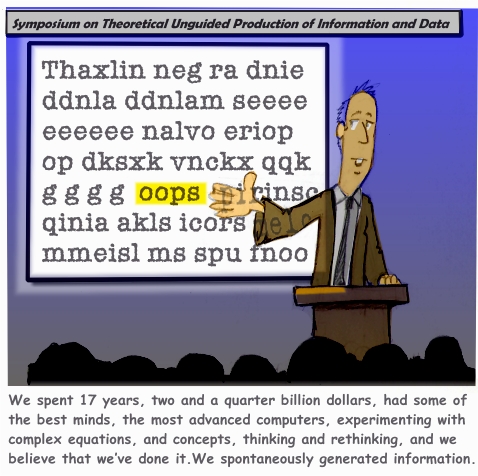John Bauer
Reformed
- Jul 21, 2022
- 512
- 346
- Country
- Canada
- Gender
- Male
- Faith
- Reformed
- Marital Status
- Married
- Politics
- CA-Others
I understand that a scientific theory doesn't prove anything, but I don't inderstand what a scientist told me recently - that science can't prove anything at all.
Science can't prove that the Empire State Building is taller than I am?
Since I had no part in that conversation, I can't come to his defense. I have no idea what he said, only what you heard. Nevertheless, I suspect that he might have been talking about the philosophy of science. That is to say, maybe he was paying respect to the demarcation line between deductive and inductive reasoning. In deductive reasoning, the truth of the conclusion is guaranteed by the truth of the premises—or proven, if you will—moving from generalizations to specifics. Science doesn't work that way; science is about moving from specifics to generalizations, the results of which are probable, not proven. As a matter of fact, the conclusions of science are never "true," they can only approach truth. Newton got pretty close; Einstein got even closer; someone else will get us much closer.
Deductive reasoning vs. inductive reasoning vs. abductive reasoning
With respect to evolution, the theory is not "true." A shocking admission? It really shouldn't be. It's not the theory that is true but the facts which it attempts to explain. In other words, what's true are the facts of paleontology, population and developmental genetics, biogeography, molecular biology, paleoanthropology, archaeology, anatomical homology and analogy, evolutionary developmental biology and epigenetics—and on and on. These are the facts, the empirical observations made of the real world. But how are we to understand and make sense of all these categorically different observations being made?
In science, that is the role of a theory, a conceptual structure that provides a way of organizing, interpreting, and understanding the massive wealth of data we possess, drawing all the relevant facts together into a coherent scientific model that makes sense of them or explains them—and, even better, it makes predictions that result in new, previously unknown evidence being discovered which then adds to the evidential credibility of the theory.
This is what the heliocentric theory does, for example. (Yes, heliocentricism is "just a theory.") It makes sense of otherwise strange planetary motions. It is not itself true, it is just our best scientific explanation of what is true—the celestial bodies and their "wandering" motions—an explanation so powerful that it enables us to intercept planets with satellites and rovers, or land scientific instruments on comets like Churyumov-Gerasimenko, or even calculate the location and orbit of a tiny Kuiper belt object (2014MU69, "Ultima Thule") roughly ten billion kilometers away accurately enough to perform a photographic fly-by. All these things are effectively falsifiable predictions (empirical tests) of that theory.
In a similar way, evolution is not true, it's just the best scientific explanation we have for all these things that are, an explanation so powerful that it can even allow us to predict what types of fossil we ought to find and where to find them, even before we go looking.
Upvote
0


